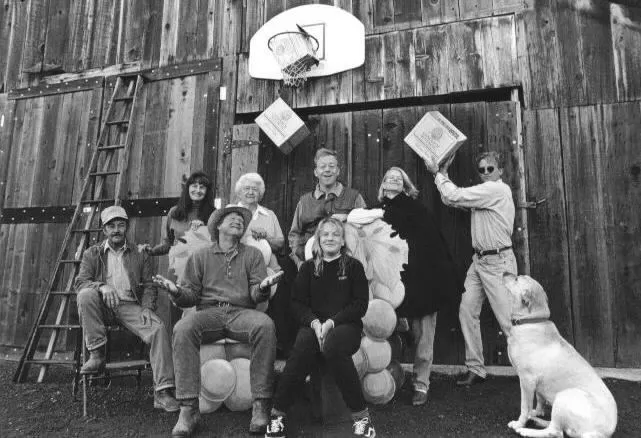Farming for the Future with the Bundschus
By Virginie Boone
A family winery in business since 1858 wouldn’t necessarily be the most likely leader in farming for the future, but then again, who better to understand what it takes to survive over 100 years. The Bundschu family of Gundlach Bundschu Winery in Sonoma Valley understands what it takes and is betting on sustainable, organic and now regenerative farming practices to keep it surviving and thriving for the next 100 years.
Recently honored as a member of the Sonoma County Winegrowers’ Century Club, the Bundschu family is in its sixth generation of farming in Sonoma County, each generation contributing to the legacy of their Rhinefarm, Gundlach Bundschu’s estate vineyards established in 1858 on the southern end of the Mayacamas Mountain Range near the town of Sonoma.
Encompassing 320 acres farmed in 60 distinct blocks, Rhinefarm has long been sustainably farmed. But in 2023 304 acres at Rancho Agua Caliente and Rhinefarm vineyards became Regenerative Organic Certified® (ROC), only one of a handful of certified wine grapegrowers in the world.
ROC is managed by a nonprofit called the Regenerative Organic Alliance (ROA), which consists of a coalition of experts in farming, ranching, soil health, animal welfare and worker and farmer equity. Its goal is to restore soil health, uphold animal welfare and enhance the livelihoods of farmers for generations to come, encompassing practices that revitalize soil health, from cover cropping to composting.
The winery produced a video called Dirt to Glass detailing some of the work it undertook to achieve this certification, as well as its deeper commitment to constant innovation and action, “from dirt to glass.”
It also published a timeline of the work certification entailed, from becoming certified sustainable in 2008 to developing a grazing team to buildup soil health in 2022, which included sheep, goats, donkeys, cows and two guard dogs for the sheep, Bert and Reynolds.
While that timeline might seem long, it’s nothing compared to the history of Rhinefarm itself. Bavarian immigrant Jacob Gundlach bought the original 400 acres of the property in 1858, buying rootstock in Germany and France while honeymooning back in Europe. That rootstock would figure into the first 60,000 vines being planted at Rhinefarm, which enjoyed its first full vintage in 1861.
Charles Bundschu came along in 1868, six years after immigrating to San Francisco from Germany. The winery survived the phylloxera outbreak of the 1870s by grafting European vines to resistant native roots, the first in Sonoma County to do so, vines that survived, in many cases, 100 years. Bundschu eventually married Francisca Gundlach, Jacob Gundlach’s daughter. In 1894 the winery was renamed Gundlach Bundschu Wine Company in honor of the two families coming together.
But trying times lied ahead. The 1906 earthquake unfortunately destroyed one million gallons of Gundlach Bundschu wine and three family homes, forcing a rebuild of the estate. Prohibition cut deeper, closing the winery doors in 1919.
Through the darkness, the Bundschus were able to hold on to 130 acres of Rhinefarm, farming grapes and Bartlett pears. When the 21st Amendment made it possible to resume winery operations, owner Walter Bundschu’s wife remained a prohibitionist. His brother Carl thankfully was able to buy the grapes though as the winemaker for Inglenook in Napa Valley.
Eventually Walter’s son Towle took over, restoring Rhinefarm to 200 acres by buying adjacent land from a great aunt and selling the grapes over time to Almaden Winery and Louis Martini.
Towle’s son Jim Bundschu convinced him the property needed a refresh and in 1969 the vineyard was replanted. Two years later, plans to reopen the family winery were hatched, though it would take until 1973 for Gundlach Bundschu Winery to officially be reborn, opening to the public in 1976.
It took another 21 years for Rhinefarm to be restored to a single contiguous estate, when the Bundschus added a portion of an old parcel to the existing 200 acres of vineyard. In 2001 the family made the bold move to make only estate wines. In 2010 the Heritage Wines program launched to highlight the best of Rhinefarm.
Here we are more than a year after the winery’s ROC certification, setting the stage for 100 years more.
***to hear more about Gundlach Bundschu’s road to ROC, listen to our conversation with Sustainability Manager Megan Murphy on “The Good Stuff” radio hour on KSRO this coming Saturday, February 1st from 1-2 PM***


